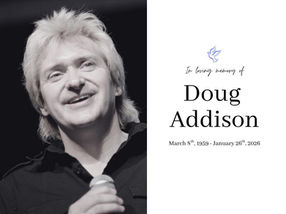BackThe #1 Drink to Help You Lose Visceral Fat, Recommended by Dietitians
- Dr Theresa Phillips

- Jun 6, 2025
- 4 min read

Sarah Garone, D.T.R www.eatingwell.com
Jun 7, 2025
It’s probably already part of your daily routine! Visceral fat is found in your abdominal cavity and surrounds vital organs like your stomach.
Visceral fat is found in your abdominal cavity and surrounds vital organs like your stomach.
Excessive visceral fat increases your risk of chronic diseases like heart disease. Research has shown that coffee can help reduce visceral fat.
Body fat serves all sorts of valuable functions in your body, from storing certain vitamins to keeping you warm. But there’s one type of body fat that’s not-so-friendly for your health: visceral fat. Inside your abdominal cavity, this form of adipose tissue (fat tissue) surrounds critical organs, such as your stomach, liver and intestines. Fortunately, there’s one drink that can help you reduce visceral fat. Java lovers, rejoice! It’s coffee.
Research has linked drinking coffee to reductions in body fat. For instance, a 2025 study of over 45,000 people found that those who drank coffee (an average of 1.7 cups per day) had significantly lower visceral fat than non-coffee drinkers.1
Though it’s important to have a small amount of visceral fat for cushioning your organs, too much of it raises the risk of cardiovascular disease.2 So, if you’re a regular coffee drinker, you can keep up the good work (in moderation). Or, if you don’t usually enjoy a morning brew, here’s why you may want to start if you’re trying to lose visceral fat.
Why Coffee Can Help Reduce Visceral Fat
So what is it about a daily cuppa coffee or two that might help with visceral fat? According to registered dietitian Megan Byrd, RD, several factors may be at play.
Caffeine May Support Your Metabolism
Coffee’s famous energy-boosting caffeine content could be one of its keys to decreasing visceral fat. Byrd says experts have long believed that caffeine’s ability to increase your metabolism is the primary reason coffee may promote weight loss. However, she points out that a recent study did not find the same effect from green tea, which also contains caffeine.3
“Coffee usually has more caffeine per ounce [than green tea], which can increase resting metabolic rate further.” In fact, some studies have established that coffee may raise metabolism by between 5% and 20% for at least three hours after consumption.4
Coffee Provides Antioxidants
Coffee gets lots of good press for its high content of antioxidants. Each cup contains anywhere from 200 to 550 milligrams of these beneficial plant compounds, more than green tea or red wine.5 Antioxidants help protect your body against cell damage.6 Additionally, including plenty of antioxidants in your diet is another way to potentially reduce visceral fat. A 2024 study showed that eating more antioxidants may be associated with less visceral adipose tissue.7
Specifically, says Beth Conlon, Ph.D., RDN, chlorogenic acids and cafestol, both found in coffee, are two antioxidants that may help lose visceral fat. “Studies have shown that chlorogenic acids can decrease abdominal fat, body weight and waist circumference,” she says.8 Cafestol, meanwhile, has been linked to reductions in body weight and visceral fat volume.9 “It’s thought that these compounds can influence metabolism and fat breakdown, offering a potential mechanism behind coffee’s effects on visceral fat.”
Coffee May Reduce Appetite
Another potential benefit of caffeine for visceral fat is reducing your hunger levels. “The caffeine in coffee can stimulate the nervous system and potentially reduce appetite,” says Conlon. In this way, coffee could contribute to lower calorie intake, indirectly reducing abdominal fat over time.
On the other hand, some research has yielded conflicting results about whether (and when) caffeine may suppress appetite, suggesting that the timing of coffee consumption may affect its impact on hunger. According to an older study, drinking coffee after a meal, rather than before, was more effective in reducing hunger.10
Conlon notes, too, that coffee’s appetite reduction doesn’t mean you should replace meals with java alone. “Coffee itself is not a meal! It’s important to consume adequate nutrition and balanced meals throughout the day for good nutrition and health,” she says.
How to Enjoy Coffee for Visceral Fat Loss
Not every coffee beverage is a surefire way to lose visceral fat—what you put into your drink matters. “If you’re adding a lot of fats and sugars to your coffee, health benefits may not be as prevalent as just drinking your coffee black,” Byrd says. For most people, black coffee is an acquired taste, but Conlon says it offers the opportunity to explore different types of beans and roasting styles.
Then again, if you can’t get past black coffee’s astringent taste, there are plenty of other healthy options. Adding a splash of milk or milk alternatives like oat or almond can lend some sweetness to your coffee without tons of added sugar. “Also, being mindful of timing is important; enjoy your coffee earlier in the day so it doesn’t interfere with sleep,” Conlon says.











Comments